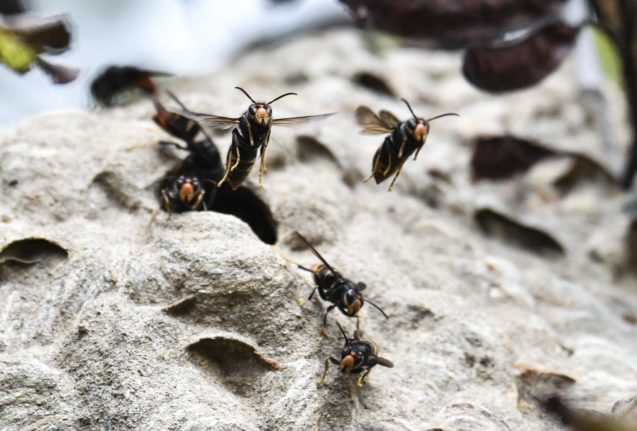The bill, which had the support of the government and was adopted unanimously, aims to “organise the fight and prevention against this species” with the help of a “national strategy broken down at departmental level”, according to author, Rassemblement Démocratique et Social Européen Senator Michel Masset.
READ ALSO What to do if you find a bee, wasp or hornet nest on your French property
It lays out plans for the creation of a national control plan involving the State, scientists and local agencies, to monitor the proliferation of Asian hornets in France. It also entrusts prefects with the task of defining local procedures for reporting the appearance of nests and destroying them.
“This bill is a fundamental element in our ability to reduce the impact of this invasive exotic species”, French Secretary of State for Biodiversity, Hervé Berville, said as he spoke in favour of measures to combat a predator which, in his view, represents “a triple threat: to the beekeeping industry, to the environment and, of course, to public health”.
READ ALSO Asian hornets claim another victim in France: What to do to avoid being stung
A compensation framework for beekeepers who had suffered economically because of damage caused by Asian hornets was also approved by the Minister.
The Asian hornet, which appeared in France 20 years ago and has since spread widely, is responsible for an estimated 20 percent of bee deaths in France, representing an annual loss of €12 million for the beekeeping industry.
The invasive insect is “a beekeeping calamity, a scourge for biodiversity and a risk that is insufficiently taken into account”, rapporteur Jean-Yves Roux said.



 Please whitelist us to continue reading.
Please whitelist us to continue reading.
Member comments